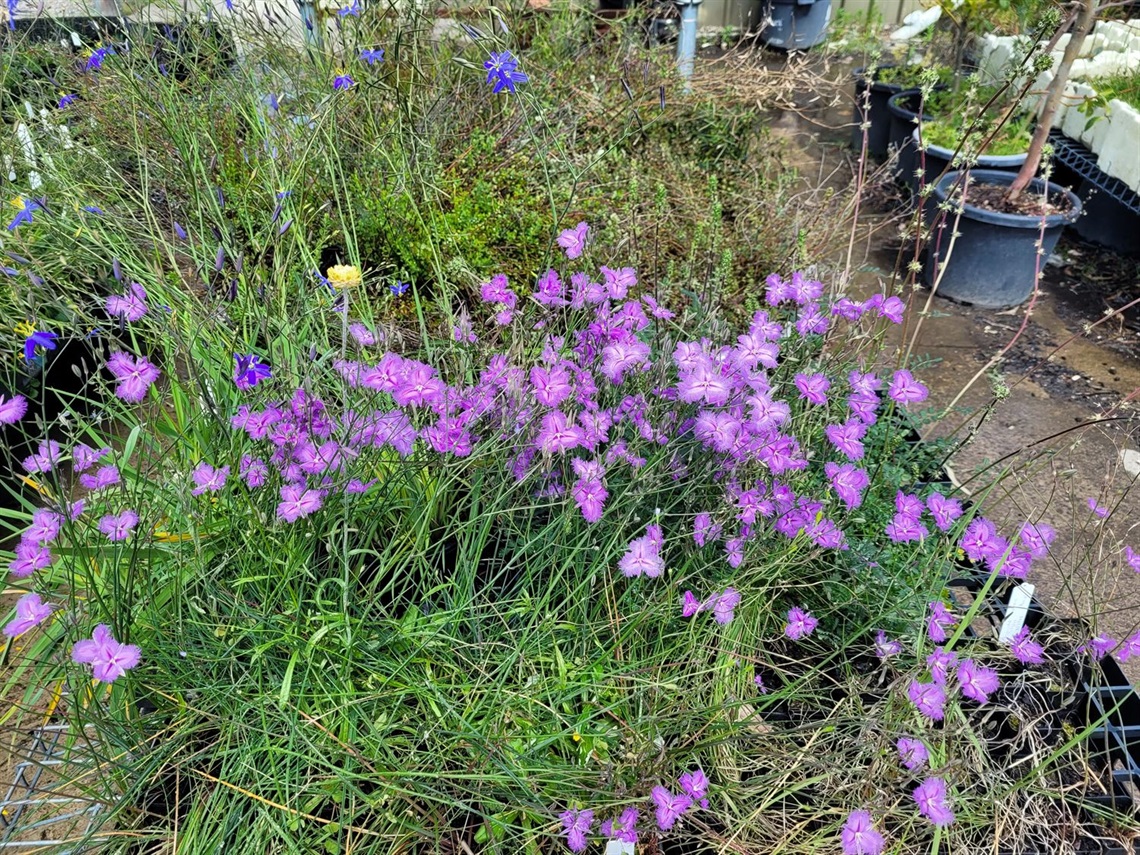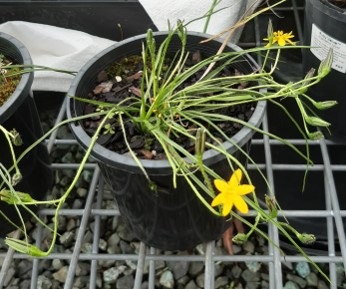Seed farming in Maroondah
Published on 23 November 2023

As part of a program to conserve rare or declining plant species, the Bushland Management Team is increasingly focusing on farming seeds of these species. Plants are grown with the specific purpose of producing as much seed as possible for collection and use in bushland restoration.
Seed farming has become a necessity because many of our plant species are not reproducing in reserves (despite the very low weed content). There are many reasons for this decline, mostly associated with the changed conditions and processes plants experience in urban areas compared to larger natural areas. Without our input they may become extinct in Maroondah.
Seed farming has several benefits including:
- Providing insurance against the concerning loss of plants in reserves.
- Allowing plants from several small populations to be combined, creating more genetically diverse seed which is better able to adapt to environmental change.
- Producing greater quantities of seed - much more seed is produced from plants grown under ideal conditions than in competitive conditions in the bush - which makes collection easy, cheap and fast. Eventually, more seed goes back into the wild than was taken to create the farms.
- Greater overall success rates of seed production - even in years when plants don’t seed well in the bush like they have this year.
We use the farmed seed to improve the population size and genetic diversity of rare plants in our reserves, as well as providing improved genetic diversity in revegetation plantings. We are also sharing our seed with other indigenous nurseries in the region where they have populations under similar threats.
Species we’ve successfully farmed so far include Patersonia occidentalis, Patersonia fragilis, Wahlenbergia (most species), Hypoxis hygrometrica, Hovea heterophylla, Dianella amoena, Thysanotus tuberosus, Rytidosperma duttonianum, and Chamaescilla corymbosa.
Currently our seed farming program is relatively small in scale, but we hope to expand this over the coming years as we improve on cultivation methods for various species. In the near future we hope to offer our environmental volunteers the opportunity to participate in seed farming by either growing plants at home, or in their reserves. This will allow volunteers to help make an even more significant contribution to conservation in Maroondah, potentially without even leaving home.
